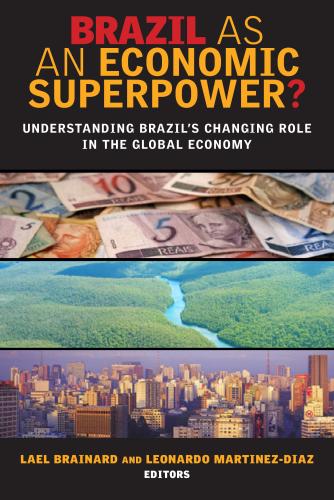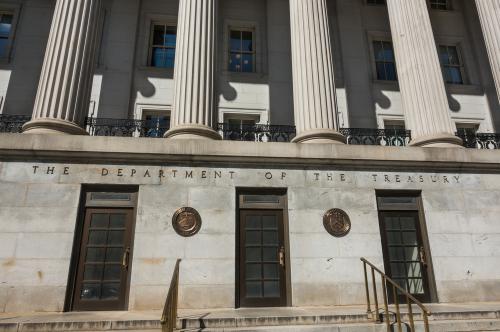Every G-20 Summit host is warned that all the careful planning can be overturned in an instant by a global crisis—trade wars and Ukraine struck Argentina, Syria’s war overshadowed Turkey’s summit, President Trump’s election and dismissal of climate change dominated the German G-20. Saudi Arabia’s planned agenda is now being pushed aside to make room for an emergency G-20 leaders’ meeting in the coming days to deal with the COVID-19 (coronavirus) pandemic.
The triple economic shocks of coronavirus
There is a perfect storm brewing in the global economy. Most recessions are caused by a demand shock (think 9/11), a supply shock (think of the first oil price increase) or a financial shock (think Lehman Brothers and the Great Recession). COVID-19 promises to deliver all of the above in a single package.
The demand shock is clear and obvious as whole populations go into quarantine in every major economy, dealing a massive body blow to all consumer services. Estimates of the impact still vary widely, but a large (5 to 10 percent of GDP) decline in the first quarter when community spread contagion starts is a starting point. Tourism, hospitality, and travel are the front lines. Already, share prices for airline stocks have retreated by 50 percent. Beyond this, the real differences in forecasts surround the speed of the recovery in the following quarters and that, of course, depends on national policy.
Equally, the supply shock is widespread. As our colleague Geoff Gertz has noted, while we know that supply chains are long and complex (Toyota is thought to have over 2,000 Tier 1 and Tier 2 suppliers), the real threat is that we do not know the potential choke points as the mapping of supply chains is opaque. The Global Fund, for example, has recommended that its implementing partners place orders 30 days earlier than usual.
Finally, the recent actions of the U.S. Fed to inject some $500 billion into repo markets suggest that already there are signs of a liquidity crunch. Small and medium enterprises will not be able to survive the squeeze on cash flows for too long before defaulting or having to reschedule bank loans.
The purpose of spelling out these fundamentals is that the G-20 must act on all three fronts simultaneously to have significant impact.
4 priorities for the G-20
1. Leaders should announce a coordinated fiscal stimulus package to address the demand shock. The impact of fiscal stimulus can be up to twice as large when it is coordinated across the G-20 because when any country operates on its own, there is demand leakage into imports that reduces the effect. Many observers feel that the best type of stimulus at present is a one-shot direct cash transfer to households, particularly poorer households who are more likely to spend the money and who may be cutting back due to job or income losses, especially for contract workers and the self-employed.
Having a collective G-20 commitment is important because it also results in countries doing more stimulus than they otherwise would have done. Interviews with G-20 leaders, ministers, governors and senior officials about their response to the 2008 financial crisis found that more than half of the G-20 countries undertook more fiscal stimulus because of the G-20’s coordination. Many used the G-20’s commitment as political cover to push their systems to deliver more stimulus, sending a vital message of confidence to markets and boosting global aggregate demand. This is especially important today when fiscal space is more limited in many countries and misguided or malevolent voices against higher government debt might be louder.
2. Leaders must reiterate their long-standing commitment to avoid competitive exchange rate devaluations. Although the IMF’s latest analysis shows that half of G-20 countries have overvalued exchange rates—up to 12 percent for the U.S. and 15 and 12 percent for the United Kingdom and Australia—this is not the time to try and adjust to these long-term equilibrium levels. Research shows just how quickly competitive devaluations can spiral into a full-blown currency war, resulting in a host of unintended consequences. For example, research shows that a devaluation in the United States could actually lead to a bigger trade deficit, a weaker Chinese currency, and a boost to the trading balances of U.S. trading partners in the medium term.
3. There must be a collective commitment to keep global supply chains open to address the supply shock. Providing small and medium enterprises access to credit, for example, helps both the national economy and the global economy when the business is engaged in international trade. Additionally, leaders should commit to not introduce any new restrictive trade or investment measures. The health response from countries must not be used as a form of protectionism. Such commitments may appear hollow given how flagrantly the words have been ignored in practice since the Great Recession, but the counterfactual may have been even worse. “Even though it was a non-binding commitment, countries nevertheless clearly felt bound by it,” noted the former U.S. G-20 sherpa, Michael Froman.
Naturally, the most important supply chain in the short run is that for medical equipment. Already since the beginning of 2020, 24 nations have imposed export bans on medical equipment. The G-20 should publicly commit to scrapping tariffs, quotas, and non-tariff barriers on imports of relevant medical equipment, soap, disinfectants, and medicines; agree to reverse and discontinue all export bans; and incentivize private suppliers through minimum price guarantees.
4. Leaders must commit to ensuring the adequacy of the global financial safety net—the collection of global, regional, bilateral, and domestic institutions and mechanisms that support countries facing a financial crisis. The COVID-19 shock is already transforming into a financial crisis and it is only a matter of time before tightening financial conditions cause a serious balance of payments problem in a fragile economy.
The G-20 must stand ready to provide the liquidity backstop that countries need. They cannot rely on the existing institutional system. Research shows that the safety net is dangerously inadequate at present, unable to provide even the same level of financial support as was provided in previous crises such as the Asian financial crisis. Its resources are insufficient and, more worryingly, its different layers are poorly coordinated. There is little understanding of how the IMF, bilateral swap lines, regional financing mechanisms, and development banks would be coordinated during a crisis.
Addressing the safety net’s inadequacies will be critical to stopping economic contagion. Leaders must commit to stand ready to increase the IMF’s resources. The fastest way to do this is to extend and enlarge countries’ bilateral loans to the IMF, which will expire over the next two years. Expanding the use of the IMF’s precautionary lending—where it lends to countries before a crisis has occurred—will ensure a fast response, minimizing the cost of crises, but it will also be a substantial burden on IMF resources, reiterating the importance of a well-resourced IMF. Leaders should direct the IMF to urgently increase planning and coordination with regional financing mechanisms, such as the European Stability Mechanism and the Chiang Mai Initiative Multilateralization. Even with increased resources, the IMF will likely be a minority lender if the country (or countries) that require support are large enough.
At the same time, the World Bank and other international financial institutions must be encouraged to provide the resources to permit governments in developing countries, especially low-income countries, to have the same kind of fiscal space as other economies. During the 2008 crisis, low-income countries were unable to expand fiscal spending and their safety nets and social assistance programs correspondingly suffered. The same should not happen again.
Cooperation is crucial
The world is a different place from what it was in 2008 and it faces a very different shock. More limited macroeconomic firepower in the face of a hybrid demand-supply-financial shock is worrying, but the greatest concern is the deficit of international cooperation that has emerged since then. Cooperation has been replaced with confrontation, solidarity with suspicion. The statement from G-20 sherpas, much like the statement from G-7 leaders, struck a cooperative tone, but lacked practical commitments. Success in addressing COVID-19 will only be as strong as success in the weakest country. Germany may eradicate the virus, but if Italy drops the ball, it will be back within days. Global cooperation is therefore vital. This is why the G-20 was created. Its leaders must rise to the challenge.
The Brookings Institution is committed to quality, independence, and impact.
We are supported by a diverse array of funders. In line with our values and policies, each Brookings publication represents the sole views of its author(s).











Commentary
The triple economic shock of COVID-19 and priorities for an emergency G-20 leaders meeting
March 17, 2020